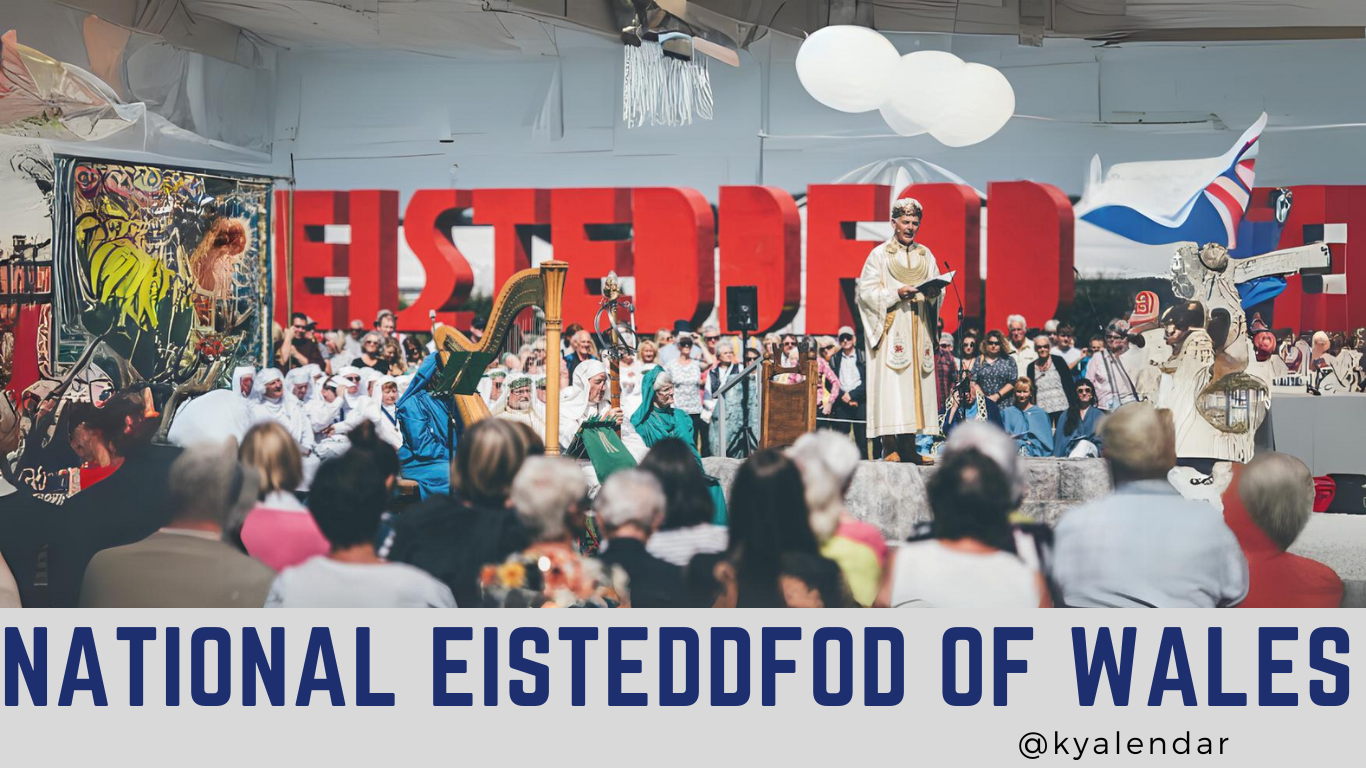
- This event has passed.
National Eisteddfod of Wales
August 3 - August 10

The National Eisteddfod of Wales (Eisteddfod Genedlaethol Cymru) is one of the largest and oldest cultural festivals in Europe, celebrating Welsh culture, language, and traditions. This annual event is celebrated annually during the first week of August. The festival typically lasts for seven days, starting on the first Saturday of August and concluding on the following Saturday, and gathers thousands of participants and spectators in a week-long celebration of music, literature, dance, and visual arts.
History: The roots of the Eisteddfod can be traced back to the 12th century, with formal gatherings of poets and musicians sponsored by Welsh nobility. The tradition was revived in its modern form in the 19th century, with the first National Eisteddfod held in Aberdare in 1861. Since then, the festival has been held annually, except during times of national crisis, such as World War I and World War II.
The term “Eisteddfod” itself is derived from the Welsh words “eistedd” (to sit) and “bod” (to be), reflecting the gathering of people to observe performances and competitions.
Significance: The National Eisteddfod of Wales plays a crucial role in preserving and promoting Welsh culture and language. It provides a platform for artists, musicians, poets, and writers to showcase their talents and contributes significantly to the cultural life of Wales. The festival is also a key event for the Welsh-speaking community, reinforcing the importance and vitality of the Welsh language.
Events and Competitions: The Eisteddfod features a wide range of events and competitions, including:
- Music: Choral singing, solo performances, instrumental music, and contemporary bands.
- Literature: Poetry, prose, and drama competitions, with the prestigious Chairing of the Bard and Crowning of the Bard ceremonies honoring the best poets.
- Dance: Traditional Welsh dance, contemporary dance, and dance competitions.
- Visual Arts: Art exhibitions, craft displays, and competitions in painting, sculpture, and photography.
- Drama and Theatre: Performances of plays, monologues, and theatrical productions.
- Workshops and Seminars: Educational sessions on various aspects of Welsh culture, history, and language.
Gorsedd of the Bards: A significant aspect of the Eisteddfod is the Gorsedd of the Bards (Gorsedd y Beirdd), an association of poets, writers, musicians, and other cultural figures who have made notable contributions to Welsh culture. The Gorsedd ceremonies, including the Chairing and Crowning of the Bard, are key highlights of the festival and are steeped in tradition and ritual.
Community and Cultural Impact: The National Eisteddfod rotates its location each year, ensuring that different regions of Wales host the festival. This rotation helps to engage local communities and spread the cultural and economic benefits of the event across the country. The festival attracts tens of thousands of visitors, boosting local tourism and economy.
Conclusion: The National Eisteddfod of Wales is more than just a festival; it is a vital cultural institution that celebrates and sustains Welsh heritage. Through its diverse events and competitions, the Eisteddfod promotes the Welsh language, supports the arts, and fosters a sense of national pride and community. The festival’s rich history and enduring significance make it a cornerstone of Welsh cultural life, drawing participants and spectators from all walks of life to celebrate the unique and vibrant culture of Wales.